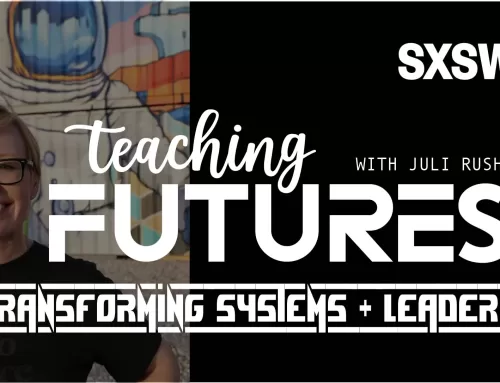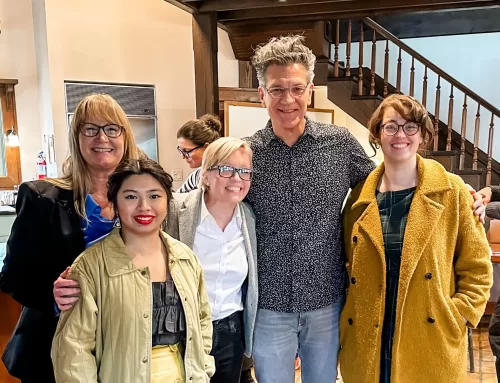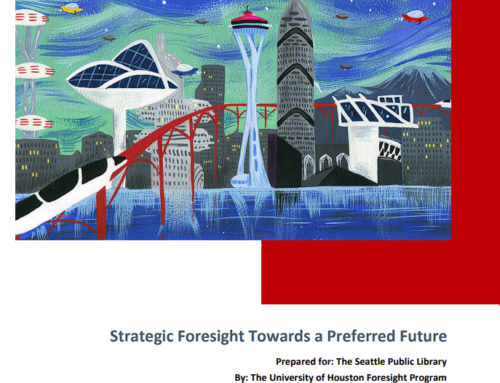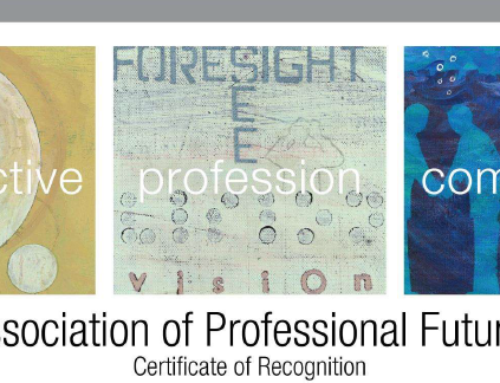In the Foresight ProSeminar class, students wrote a description of the foresight field for non-futurists suitable for publication in a mainstream newspaper or magazine. Here’s one student’s submission.
Contributor: Tom Rau
Famous artist and composer John Cage once said, “I use chance as a discipline.” He specifically used the I Ching, aka the Book of Changes, in his music to help generate randomness. It forced his performers to react to an element of uncertainty and chaos. It was John Cage’s way of creating art that more closely resembled the uncertainty present in life.
As someone who studies foresight now but previously spent nearly seven years playing high stakes poker professionally these words from John Cage really hit home for me. Understanding chance and probability are the first major steps to unlocking the game of poker. And then the next step, accepting that chance is your friend and not your enemy is in many ways, the rest of the battle. To bastardize the words of the Wu-Tang clan, “chance rules everything around me.” Without it there is no uncertainty. Without uncertainty, one of the most important concepts in foresight work, multiple futures, doesn’t exist. Thus like Cage, as foresight practitioners we must use chance as a discipline. We must learn to accept that even though we can make all of the right decisions, ultimately there are aspects of the future that are out of our control. This series of short essays is an attempt to use my experience as a professional poker player to provide a framework for thinking about the future through a lens of chance, probability, and gambling.
Part 1: Zen and the Art of Gambling
The word gambling is loaded. On one hand there is the way you, I, and all but our most drunk and/or delusional friends think about it. Occasionally we win, but in the long run the house always wins. Slot machines, the lottery, blackjack, roulette — “gambling” in this sense is when we are risking money in a game where our expected return on each dollar we bet is negative. Thus by this definition when we are gambling, despite the fact that there are instances in which we win, in the long run if we were to play a game in an infinite loop, we would be destined to lose. In this light gambling has a very negative connotation.
But there is also another truth. We are always gambling. Every decision we make is a gamble. There is a greater than zero percent chance that when you go to take your next bite of food, you will choke on it and die, alone, embarrassed and in disbelief. But eating is a gamble that we are all willing to take. The odds of losing are infinitesimally small and the reward, life and consciousness, is pretty great. Driving to work, a little more of a gamble but not enough to stop any of us. Going to the grocery store in the early days of the pandemic felt like gambling, but somebody had to do it. The point is that by definition gambling is “any act of risk with the hope of a desired result.”
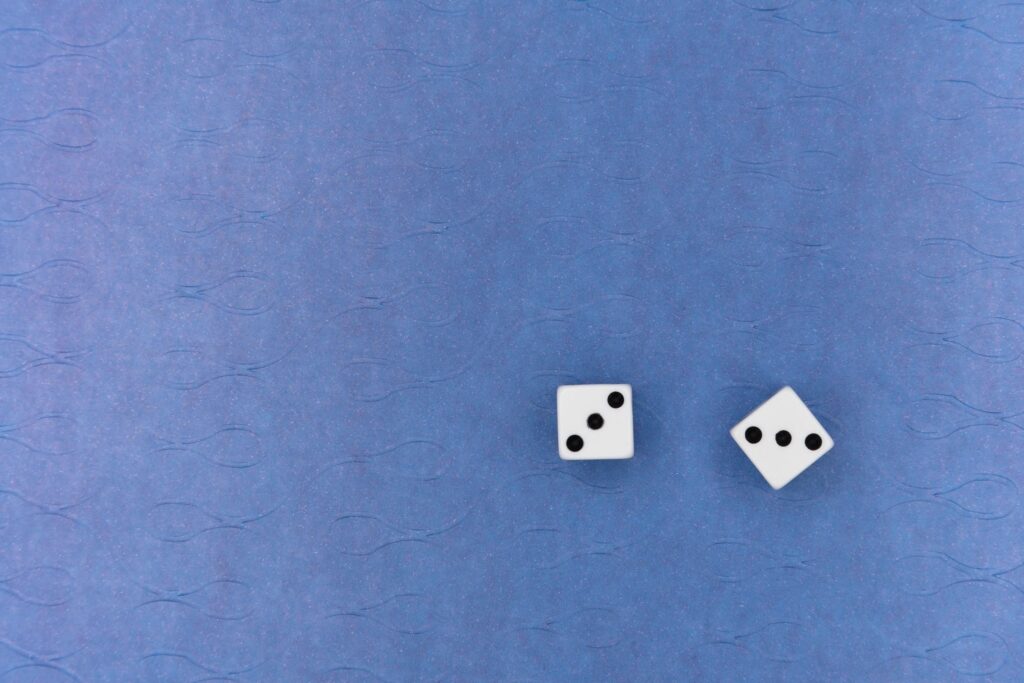
A lot of our choices fall into that category. But what if I said, I’ll give $500 million dollars if the next car that drives by your window, and let’s hypothetically say that cheating is impossible, is either blue, green, or white. But, if the car turns out to be painted any other color you have to give up all of your assets and be homeless for a year. This may or may not be a devastatingly difficult decision to make depending on your current financial and living situation. Can you imagine an immediate future more uncertain? You’re either going to be disgustingly rich or truly destitute. This is a gamble.
What’s your own risk vs reward threshold? What if only ¾ of your net worth was taken if you lost and you only had to live on the street for three months? What about two months and half your worth? I think you get the point – with every decision there is an inflection point where the reward outweighs the risk. And the decision whether we win or lose, is clear. This is a super important concept. We cannot escape uncertainty. We are going to make great decisions in our lives that don’t turn out well. And we are also going to also make terrible decisions in our lives that end up turning out great. Taking the short way home from work to avoid rush hour traffic but then getting stuck in a jam because of an accident and then getting home an hour later than you could have had you sat in the brutal rush hour traffic doesn’t mean it was a wrong decision. It means uncertainty played its part. Results oriented thinking is dangerous.
Our job in foresight is to create a higher possibility of success for those we work with. Thinking back about our previous example where we are betting on the color of the next car. We’ve already thought conceptually about our own risk vs reward threshold but we really also need to include more outside information to truly make the best decision. For instance, what percentage of cars are painted either white, blue, or green vs the percentage of cars painted “other?” That alone would give us a rough win percentage. We could compare that with our tolerance for being homeless vs our desire for being rich and now we have enough information to make a decision based on math that accounts for levels of uncertainty. Applying this concept to foresight can be as simple or as complicated as we want to make it. But we’ll get more into that in part 2 when we talk about multiple futures and applying probability and equity.
The Lesson
For now the takeaway is that like in poker, our job as futurists is to collect all of the information (trends, drivers, stakeholder actions, etc.) relative to a system and then synthesize it in a way where it becomes informative enough to steer decision making. We have to accept that uncertainty and the chaos present in the world can make even the most sure thing go awry. Yes, sometimes we will fail and see a fault in our logic and know we made a strategic blunder. But other times we did everything right and just rolled a one on a six sided die. We cannot use results as a single measure of success in a field where uncertainty is a leading actor. In poker this is a sure tell sign of a fish (aka bad player).
We are always gambling, use it. We’ll never know with certainty the color of the next car. But if we do the work we can guide our clients and the organizations we work with to the likelihood and size of their successes. Just because that car turns out to be brown doesn’t necessarily mean we were wrong to be in there gambling. Our decisions and actions are where the magic is, not in the outcomes. If we can get ourselves and our clients into this mindset then we can really start making some strong bets.
In the next essay we’ll get more into applying equity math to multiple futures.
Citation:
Le Bail, Karine. “John Cage, or Chance as a Discipline.” Memento, 18 Oct. 2018, www.diptyqueparis-memento.com/en/john-cage-or-chance-as-a-discipline/.
About the Author

Follow Tom Rau at
https://www.linkedin.com/in/tom-rau/
